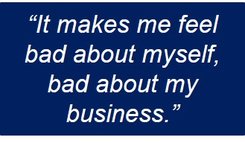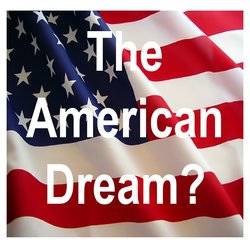When seeking a business loan, minority entrepreneurs face discrimination in the US, a new study published in the Journal of Consumer Research reports. Small-business owners from minorities who apply for loans get less help and face more questions than white entrepreneurs.
The authors of the study, titled “Rejected, Shackled, and Alone: The Impact of Systemic Restricted Choice on Minority Consumers’ Construction of Self”, from Rutgers University, Brigham Young University, and Utah State University, say that the American Dream for minorities continues to be undermined by discrimination.
Minority entrepreneurs with identical qualifications to their white counterparts are treated differently when seeking small business loans, the three-part research article informs.
Previous studies have demonstrated that US minorities face discrimination in education, employment and housing. This is the first study to clearly show that it also occurs in the marketplace.
Study co-author Professor Glenn Christensen, said:
“There is a general belief among Americans that we’re the land of opportunity and that anyone can pull themselves up by their bootstraps. It is a land of opportunity, but that opportunity is not always equally accessible.”
1st part of study – Mystery loan shoppers
The authors recruited nine ‘mystery shoppers’ to apply for loans. Three of them were black, three white and three Hispanic – they were all small business owners. The all sought the same-sized loan ($60,000), wore identical clothing, and had very similar backgrounds.
The researchers simply told the mystery shoppers that they were evaluating customer service.
The study found that the minority mystery loan-applicants:
- Received less information regarding the terms of the loan.
- Had to answer more questions.
- Received less application help from loan officers.
Christensen said:
“If you are white and set out to get financing for an entrepreneurial venture, it might be a tough journey, but, generally speaking, you would experience fewer obstacles and find more help along the way than if you came from an African-American or Hispanic background.”
2nd part of study – in-depth interviews
In the second part of the research, the authors carried out in-depth interviews with 16 white, 10 black and 13 Hispanic small-business owners regarding their experiences when seeking funding.
They found that being turned down or having restricted access to loans led to diminished self-worth and self-esteem, as well as self-questioning among minorities. Below is an example of a response from a black male small-business owner:
“My self-esteem and confidence are strong, and yet I’m being denied, so it makes me feel bad about myself, bad about my business …. You’re made to feel like I’m just not competent or capable. I feel very, very insecure.”
3rd part of study – impact on self-esteem
In this part of the study, the researchers wanted to determine what the effect of being denied an educational loan might be on participants’ self-esteem and autonomy.
In this experiment all the participants were denied a loan, but half of them were asked to report their race.
The study found that people from minorities who were asked about their race took a hit to their sense of autonomy and control, as well as their self-esteem, unlike their white counterparts who were asked the same question (they were not personally affected).
Co-author Jerome Williams, director of the Center of Urban Entrepreneurship & Economic Development at Rutgers University, said:

“While racial and ethnic minorities have made significant progress in terms of race relations over the past several decades, the harsh reality is that there still are remnants of discrimination in society.”
“It is appropriate to continue asking the question, ‘Is the glass half empty or is the glass half full?’ in terms of progress being made in eradicating discrimination in the marketplace.”
The authors said their study offers clear evidence to public policy stakeholders and consumer welfare activists that for minorities in the US, choice is not open, unrestricted and available.
Study leader, Professor Sterling Bone, said:
“Many consumers are driven to start their own business as part of their journey for the American Dream. They knock doors and they chase after this dream only to find that because they are a minority, their ability to lay hold of that dream for themselves and their families is frustrated.”

